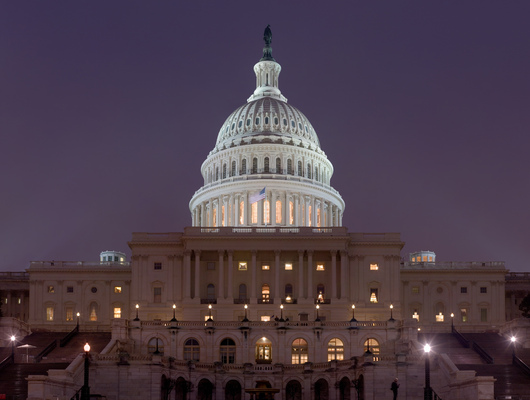
by Bryan K. Mignone Friday, January 20, 2012

The U.S. Capitol Building Diliff
Taking public approval ratings at face value, it would be easy to conclude that the legislative branch of our government is motivated by an unfortunate blend of incompetence and arrogance. Certainly the repeated and well-documented failures of Congress to act on issues of national significance and its tendency to substitute rhetoric and pork barrel spending for meaningful action provide ample fodder for this well-worn reputation. Whether or not such a portrait is fair, it reveals a powerful and deeply rooted public perception: that the fundamental purpose of Congress is to enact good legislation. Yet this is not the case, as I have seen firsthand in my year spent on Capitol Hill.
Political scholars often point out that, while Congress does occasionally pass important laws, a far more important purpose of the legislative branch is to stall bad legislation. In other words, the purpose is not to legislate, but to un-legislate — to prevent emotional responses to current events from crowding out more carefully considered (or at least, more widely supported) solutions.
Among scientists, the myth of legislative purpose is often coupled with another powerful expectation: the belief that because objective analysis leads to success in science, analytic considerations alone can lead to better social decisions and ultimately trace an untarnished path to an optimal policy outcome. Politics as usual, we think, merely impedes movement toward this noble end.
In truth, the academic standard is impossible to achieve in the political realm because politics is oriented toward social outcomes. Scientific reasoning can provide a platform for the consideration of ideas, but it cannot, on its own, provide the guidance required to arrive at a particular decision, because the “right” decision will always depend on the unique set of preferences of the decision-maker. The inherent subjectivity in decision-making is precisely why so many other factors govern the consideration and movement of political ideas.
Once we appreciate this complexity, we can see politics in a much more interesting light, as an activity with a different (but comprehensible) set of rules, and as one in which reason and objective analysis do play an essential (but subordinate) role. If policy contains the usual set of academic considerations and judgments based on these considerations, then legislative procedure is really a set of constraints on policy, the mechanisms by which different preferences are accommodated and an essential tool in the art of un-legislating.
The debate over climate legislation in the Senate earlier this year provides one of the better examples of these multiple factors at work. Exasperated scientists often wonder why, given such convincing evidence of climate change, policymakers do so little to address it. Ignorance, apathy and greed are the presumed answers, but such explanations do not capture the real and more subtle barriers to progress.
Clearly, any member of Congress must come to a conclusion about the “right” climate policy based on some understanding of the science, coupled with his or her beliefs about how the threat of climate change ranks alongside other social problems. This decision must also take into account the impacts of increased energy prices on the welfare of consumers and must acknowledge the larger set of possible policy responses.
This is where procedure comes in. The quick end to the floor debate on the climate bill ostensibly revealed deep opposition from the Republican Party to the type of policy solutions being proposed, but it also masked a significant and largely regional tension within the Democratic Party, further exacerbated by the rather non-inclusive process that led to the bill’s development. Although $4 gasoline and basic election year politics fueled opposition to a substantive piece of policy, it is important to keep in mind that perceived problems in the underlying policy also visibly shaped the politics, setting in motion a strong desire to un-legislate.
No one can argue that political gridlock will benefit our climate, but the failure to enact legislation this year does not necessarily reflect a failure of the political system. Instead, it reflects unfortunate timing and a rather uninspired effort to unlock the potential for political compromise. If these forces are mobilized under strong congressional and administration leadership, then future attempts may yield more impressive results. In the meantime, rest assured that Congress will continue to do what it does best: un-legislate.
© 2008-2021. All rights reserved. Any copying, redistribution or retransmission of any of the contents of this service without the expressed written permission of the American Geosciences Institute is expressly prohibited. Click here for all copyright requests.